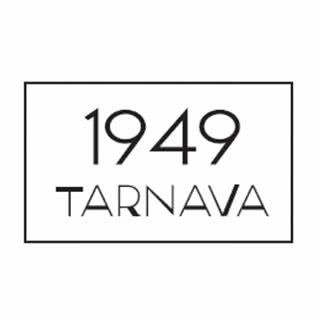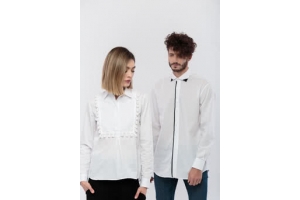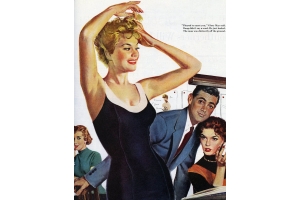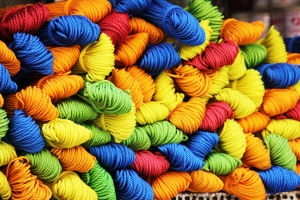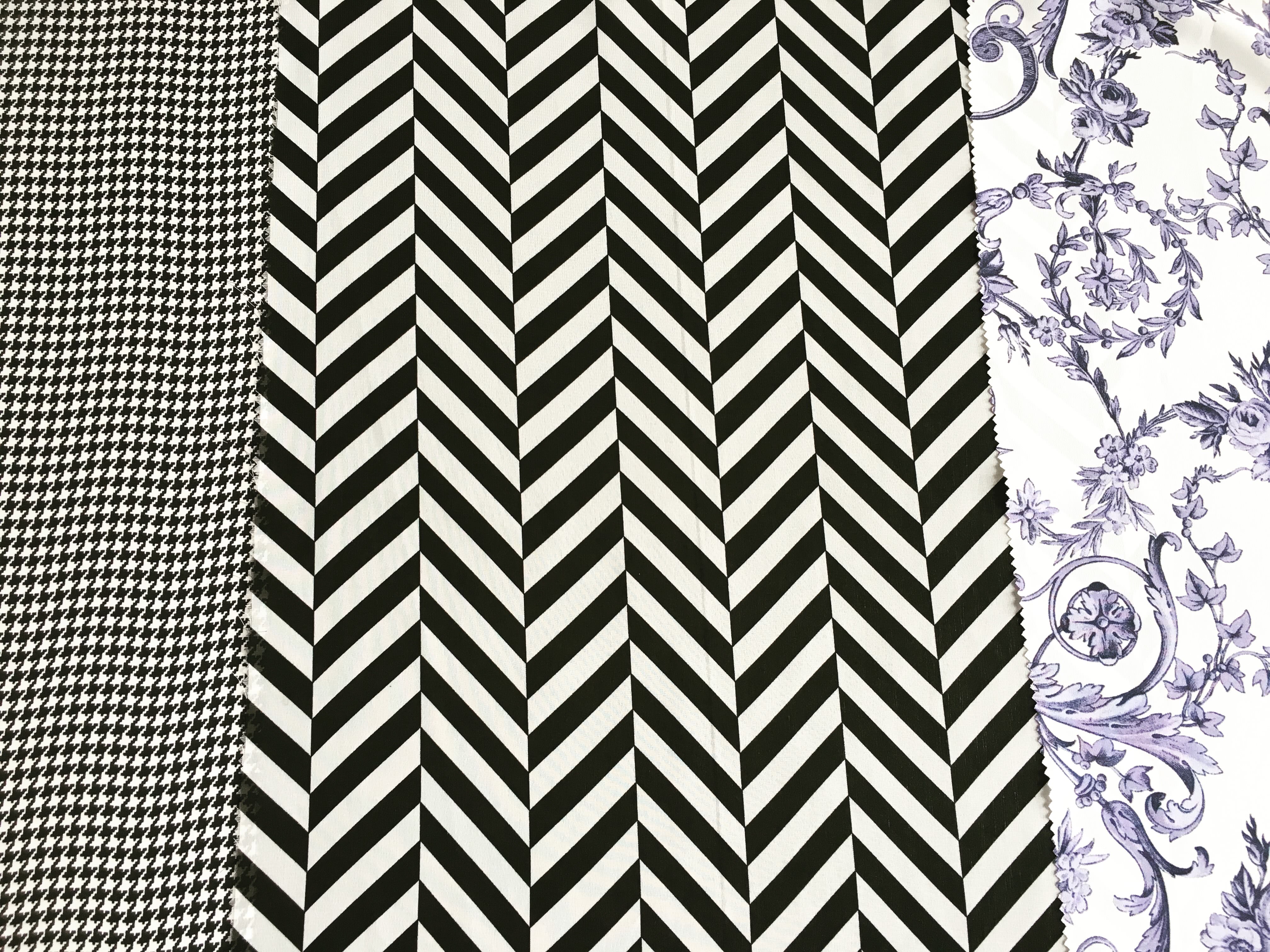
Different types of fabrics, different qualities that they have. How to know which type of fabric to choose for which shirt?
Twill
Twill fabrics can be recognized by the diagonal pattern.These fabrics are generally softer and thus more wrinkle resistant, however note wrinkle free, than plain weaves. Twill has normally a bit of shine and will be softer, easy to iron and more wrinkle resistant than others.
There are different types of twill like denim,gabardine, herringbone etc.
Pinpoint Oxford
Pinpoint has the same weave as oxford cloth, although it is more formal than oxford cloth, but less formal than broadcloth or twill. Think of them as great everyday work shirts, but not ideal for special events. Pinpoint fabrics are generally not transparent and are slightly heavier and thicker than broad-cloths. Because of their heavier construction, pinpoints are more resistant fabrics. If you’re looking for a more formal shirt, choose a twill.
Oxford is often a heavier fabric than poplin, a soft resistant fabric.
Flannel
Flannels are thicker fabrics, very cozy and warm, especially in the cold weather. They are usually made out of cotton, and are appropriate only for casual or outdoor shirts.
Two Ply
Two-ply fabrics are of superior quality. Instead of one yarn, you have two yarns twisted together to make a single thread, which is longer and finer than one yarn thread . Which is why, although you have two yarns, there is no difference in the volume.
Two ply means higher quality of the fabric, softness, longer color durability, less pilling of the fabric and easier ironing. The only disadvantage this type of fabric has is that it is more expensive than regular fabric.
Non-Iron / Iron Free Shirts
“Iron-free” cottons are chemically treated to ensure that the fabric does not wrinkle. They still need to be ironed usually, but less and easier than a regular shirt. The disadvantage of this type of fabric is that it is absorbs less water, has a less shiny surface and that is loses its coating after a it has been washed approximately 20 times.
Sanforized fabrics have usually a shrinkage of less then 1 %. The sanforization process, which consists of stretching, shrinking and fixing the fabric in width and length, while moistening it with steam or water, ensures that shrinkage in the production process and while wearing is reduced significantly.
To enjoy our products as long as possible we advise you to wash it with similar colors at maximal 40 degrees, with a liquid detergent. The colors of the fabric do not fade as quickly with liquid detergent as it removes stains easier even with colder water. Tumble drying causes more wrinkle in the fabric, which leads to longer ironing, a quicker loss of color and ultimately a quicker deterioration of the fabric.
Try to put the clothes on hangers, while they are still wet, to iron them easier and at lower temperatures. Do not use bleach. Please always read the label before washing them, ironing them or bringing them to the dry cleaner.
Ascolite
The Ascolite button wrapping machines wrap and secure the attachment threads at the space between button and fabric for a very durably secured button shank. The machines uses an elastic thread to secure the button, making sure that it stays in place.
